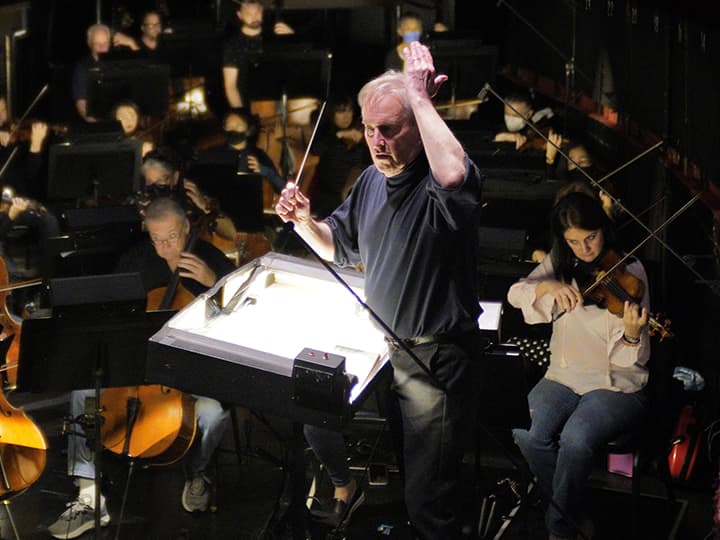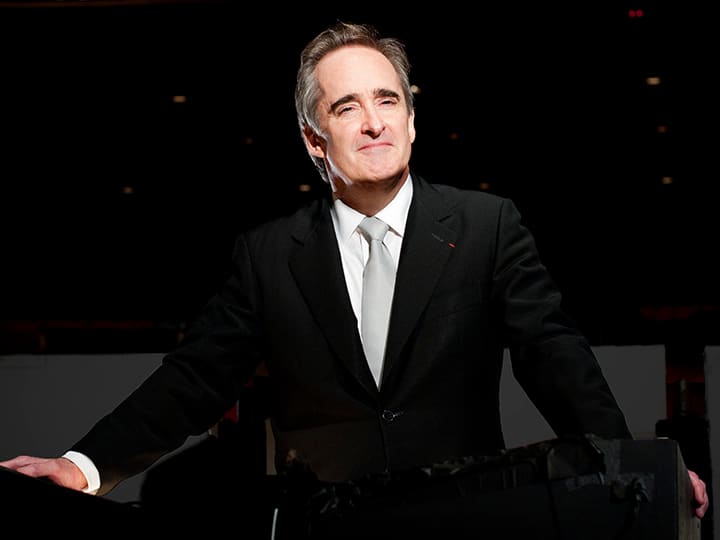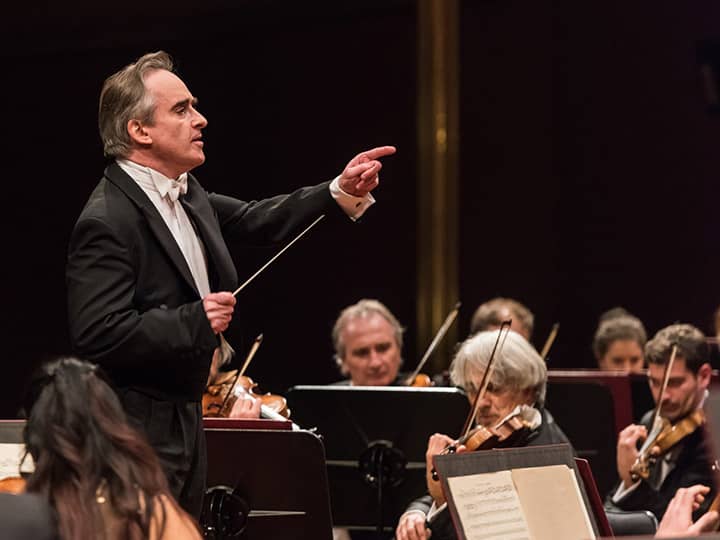“There is an optimistic version of romanticism in which what the romantics feel is that by going forward, by expanding our nature, by destroying the obstacles in our path…we are liberating ourselves…and allowing our infinite nature to soar to…greater heights and to become wider, deeper, freer, more vital, more like the divinity towards which it strives. But there is another, more pessimistic version of this…a notion that although we individuals seek to liberate ourselves…there is something in the dark depths of the unconscious or of history…which frustrates our dearest wishes.” (Isaiah Berlin, The Roots of Romanticism)
Dichotomy and inner struggle fueled the muses of the 19th century. Richard Wagner harnessed those muses and changed the artistic world. His music dramas thrived on those contradictions and struggles and left us with an artistic legacy that provoked and engendered other polemics and conflicts.
Musicians, poets, artists, critics and opera audiences have adored, detested, deified, condemned, admired and rejected Wagner, his music and his prose. His person, and the sometimes-violent reactions his works provoke, are extensions of those conflicting versions of romanticism to which Berlin refers. The vast cosmic canvas upon which his works were conceived is mirrored by the tremors these very works caused.
And yet, though this composer wrote more about the theory and practice of his art than any other in our history—and has perhaps been written about more than any other composer—his actual dramatic material is remarkably simple. I mean this not in the sense that it isn’t complex, but that, through the repeated use of archetypes and themes, he revisits several issues over the course of ten operas.
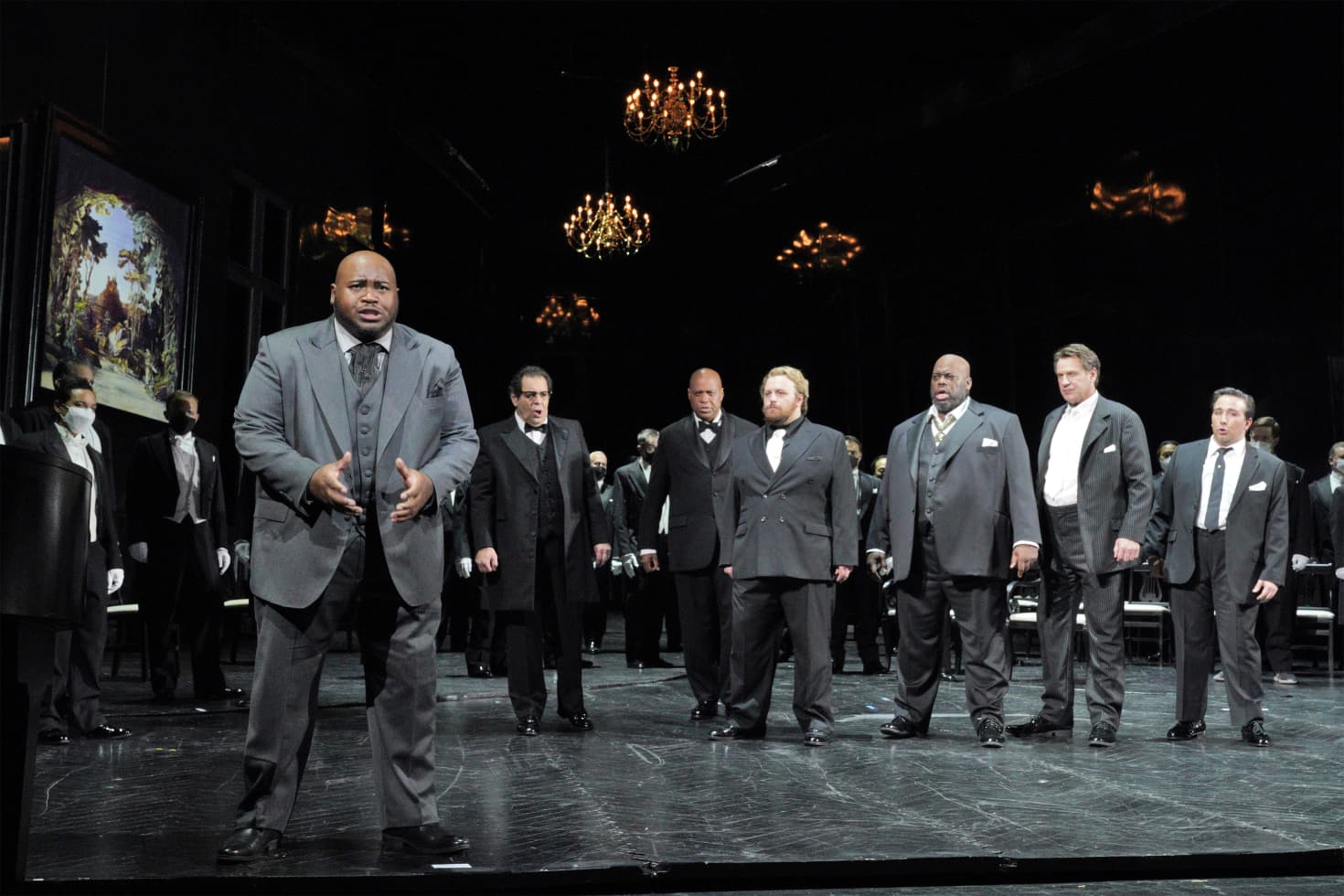
A scene from our production of Tannhäuser (Photo: Cory Weaver)
The Male Protagonist
Wagner viewed himself as a misunderstood genius who, due to his superior gifts and understanding, was a hero; as such, he was also an outsider. Each of Wagner’s male protagonists is an outsider in his own way. Each comes from a different place from the world in which he finds himself. Some dare, like Adam and Eve, to eat forbidden fruit or tempt the gods: Tannhäuser embraces the pagan revelations of Venusberg; the Dutchman makes a pact with the devil; Lohengrin literally comes from another (spiritual) world.
Tannhäuser lives a Faustian struggle. Unable to integrate spiritual and sensual love, he ventures out of his society to Venusberg, where he feels that he experiences erotic love in a way none of his acquaintances have. Imbued now with a message, he feels simultaneously superior and rejected when he returns to society. When he sings his song of praise of Venus, he is an artist revealing a “new unheard-of music” He is now outsider, artist and genius. He is a projection of Wagner’s image of himself.
So is Walther von Stolzing in Die Meistersinger von Nürnberg, another young hero who brings new music to the world. Unlike Tannhäuser, who defies an opposing father figure to do so (represented by Landgrave Hermann and, more distantly, the Pope), Walther is adopted by a “good” father figure in the form of Hans Sachs.
The Female Protagonist
Wagner’s heroines embody the concept of the “self-sacrificing eternal feminine”—a masculine projection, to be sure. They are usually the bearer of the composer’s most potent cosmic force, Redemptive Love, and they almost always prove their love by dying for their men. (The notable exception is Eva in Die Meistersinger von Nürnberg, a comedy.) All are virginal at the beginning of the opera and most remain so at the end of the opera (excepting Brünnhilde and, perhaps, Isolde).
Venus, on the other hand, represents the absolute triumph of eroticism. The splitting of the feminine principle into competing sensual and spiritual components—represented by Venus and Elisabeth—is emblematic of the 19th century’s inability or unwillingness to harmonize these seemingly conflicting forces. Wagner later revisited this idea in Parsifal, not with two characters but by incorporating them both, in unreconciled form, in the person of Kundry.
Recurring Ideas
A medieval singing contest is at the center of both Tannhäuser and Die Meistersinger, operas whose subjects are art and love. The young heroes of those operas, Tannhäuser and Walther, usher in a new age of art, though their fates are different. The title character of Wagner’s last opera, Parsifal, will relive the erotic/spiritual struggle as Tannhäuser does, though he will encounter and resolve them in a different way.
Redemptive Love may be the proposed panacea for the universe, but we, and the world, have to endure suffering first. Renunciation is, perhaps, the antidote to that other ubiquitous force: desire. Tannhäuser must journey to Rome to atone for his sinful embrace of pagan delights. In Tristan und Isolde, it is desire—not hope—that springs eternal. It can only be satisfied through death. If the Ring has any protagonist at all, it is not a person nor a god, but a cosmology that demonstrates that desire, in the form of lust for power, drives human (and godly) actions and leads inevitably to universal cataclysm. It is only through the renunciation of this desire that redemption, rebirth and the restoration of the world’s natural order can occur.
Big themes, one and all. Dated? Perhaps. Politically incorrect in our day? Possibly. Irrelevant? Not in the slightest. Tannhäuser, second in the series of ten great Wagnerian music dramas, encompasses everything Berlin describes in his “pessimistic” version of Romanticism: Tannhäuser never triumphs, Elisabeth dies. But, to my mind, by experiencing this drama in the opera house, we actually live a part of the “optimistic” version to which Berlin refers and allow our “infinite nature to soar.”
James Conlon © 2021

